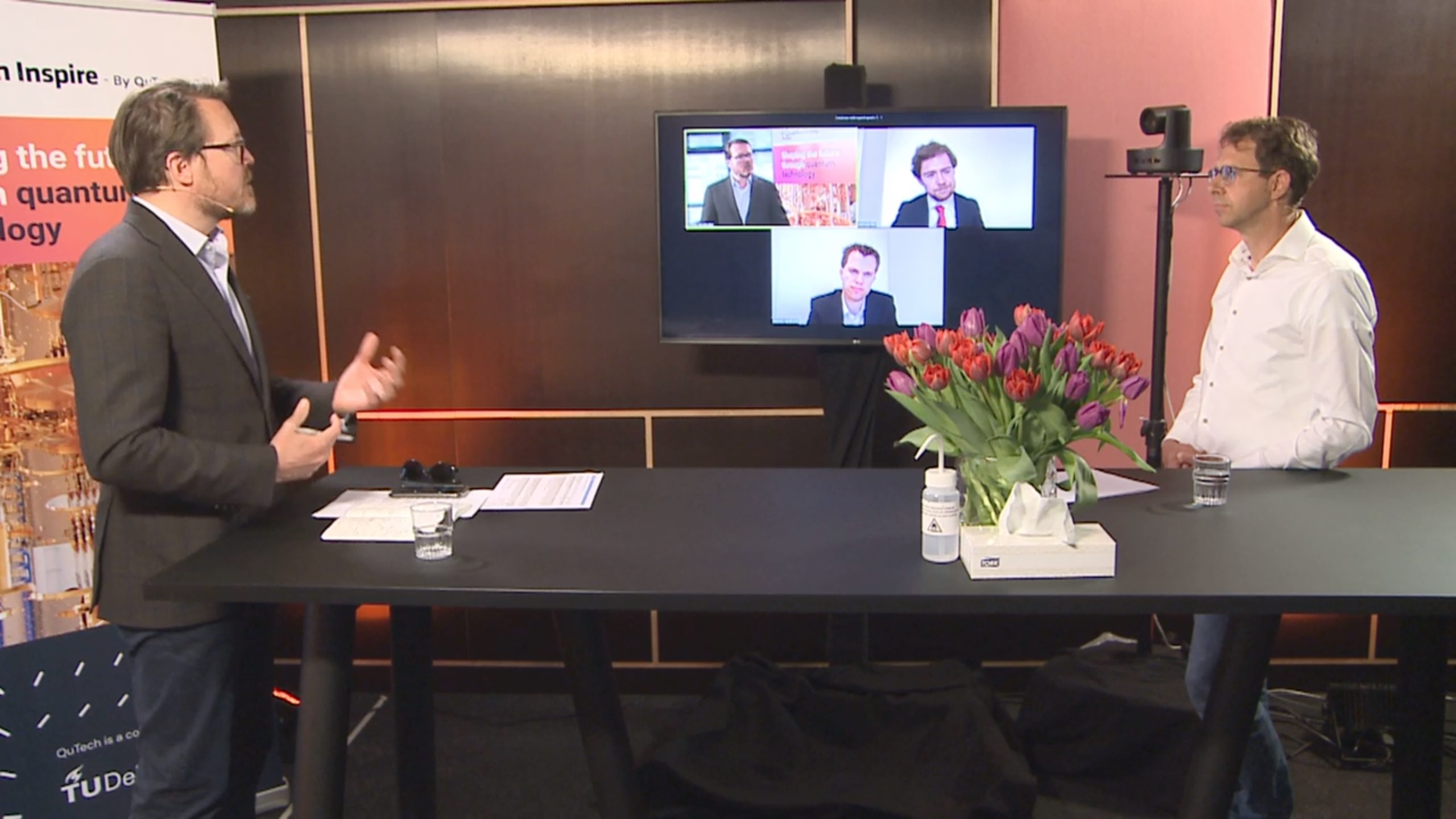QuTech has made functional quantum bits openly available on the internet under the title Quantum Inspire. The quantum computer is here, and you can try it out.
Constantijn van Oranje interviews Richard Versluis at the online launch event of Quantum Inspire. (Still from the live stream)
The field of quantum computing has seen rapid developments over the last few years, said Professor Lieven Vandersypen, QuTech’s next Director of Research. Major technological advances, scalable technologies and contact with end-users have made it possible to create a European platform that offers open access to functional qubits. Students and entrepreneurs alike are welcome to Quantum Inspire.
The online presentation of Quantum Inspire on Monday afternoon had an impressive list of speakers: Minister Ingrid van Engelshoven (Science, Education and Culture); her EU Commission colleague Mariya Gabriel; TNO CEO Paul de Krom; Rector Tim van der Hagen; and moderator Prince Constantijn van Oranje to name a few.
There is still a large gap between the potential that the speakers attributed to quantum technology – new medicines; sustainable energy; saving the climate; and social progress – and the two-qubit demonstration of quantum informatics. The charm of the Quantum Inspire platform is that it allows people to experience the attributed super powers of quantum computing hands-on. Or, as Mariya Gabriel said, “Quantum Inspire brings quantum computing to a wider audience. Congratulations to everyone at QuTech for making this possible.”
Now that quantum computing is available, what can people do with it? Richard Versluis, Principal Systems Engineer at QuTech, said that quantum computing is especially good at optimising or searching for things. “And that is what many hard problems are about,” he added. One could think of developing specific materials, new medicines, high-temperature superconductors and the like.
The other question about quantum computing is, how? QuTech offers a basic introduction course on quantum algorithms and a minor on Quantum Science and Quantum Information.
For years, people have wondered about the mysterious powers of the quantum computer. Now they can operate quantum bits hands-on. Just create an account and start coding your project. The qubits are chilled, waiting for your commands.
Do you have a question or comment about this article?
j.w.wassink@tudelft.nl


Comments are closed.